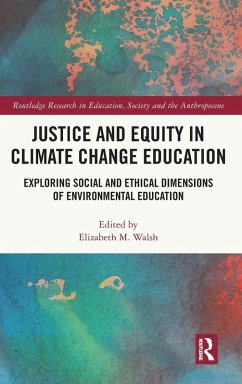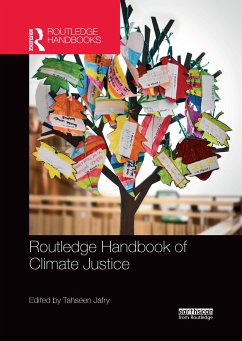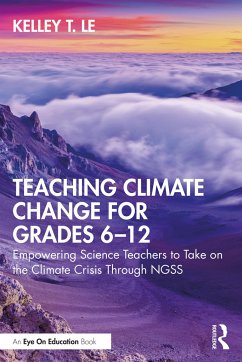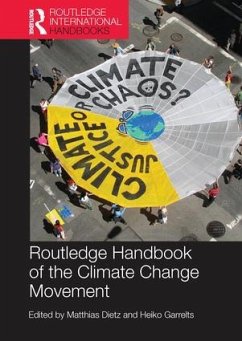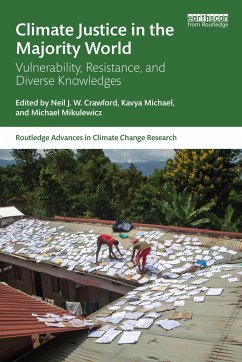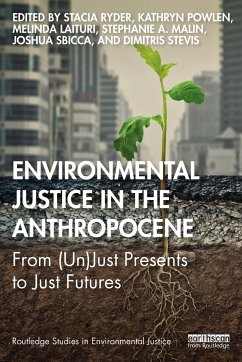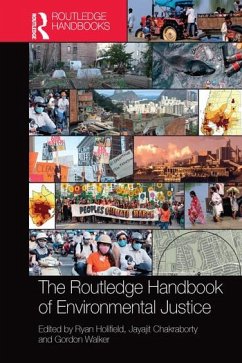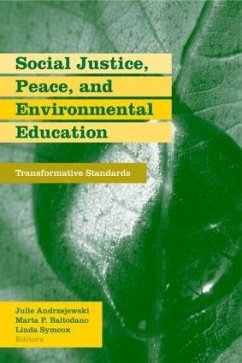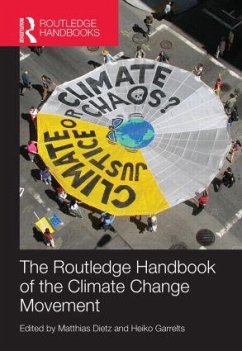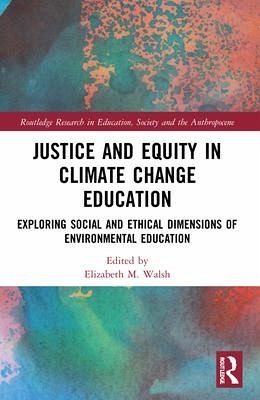
Justice and Equity in Climate Change Education
Exploring Social and Ethical Dimensions of Environmental Education
Herausgegeben: Walsh, Elizabeth M.
Versandkostenfrei!
Versandfertig in 6-10 Tagen
43,99 €
inkl. MwSt.
Weitere Ausgaben:

PAYBACK Punkte
22 °P sammeln!
This volume looks at the ways in which climate change education relates to broader ideas of justice, equity, and social transformation, and ultimately calls for a rapid response to the need for climate education reform.Highlighting the role of climate change in exacerbating existing societal injustices, this text explores the ethical and social dimensions of climate change education, including identity, agency, and societal structure, and in doing so problematizes climate change education as an equity concern. Chapters present empirical analysis, underpinned by a theoretical framework, and cas...
This volume looks at the ways in which climate change education relates to broader ideas of justice, equity, and social transformation, and ultimately calls for a rapid response to the need for climate education reform.
Highlighting the role of climate change in exacerbating existing societal injustices, this text explores the ethical and social dimensions of climate change education, including identity, agency, and societal structure, and in doing so problematizes climate change education as an equity concern. Chapters present empirical analysis, underpinned by a theoretical framework, and case studies which provide critical insights for the design of learning environments, curricula, and everyday climate change-related learning in schools.
This text will benefit researchers, academics, educators, and policymakers with an interest in science education, social justice studies, and environmental sociology more broadly. Those specifically interested in climate education, curriculum studies, and climate adaption will also benefit from this book.
Highlighting the role of climate change in exacerbating existing societal injustices, this text explores the ethical and social dimensions of climate change education, including identity, agency, and societal structure, and in doing so problematizes climate change education as an equity concern. Chapters present empirical analysis, underpinned by a theoretical framework, and case studies which provide critical insights for the design of learning environments, curricula, and everyday climate change-related learning in schools.
This text will benefit researchers, academics, educators, and policymakers with an interest in science education, social justice studies, and environmental sociology more broadly. Those specifically interested in climate education, curriculum studies, and climate adaption will also benefit from this book.





